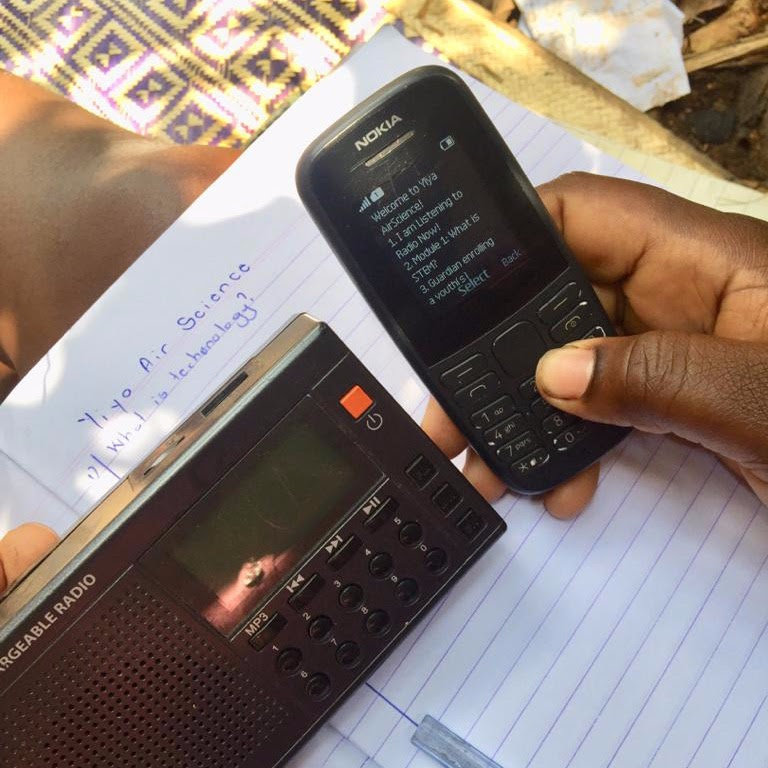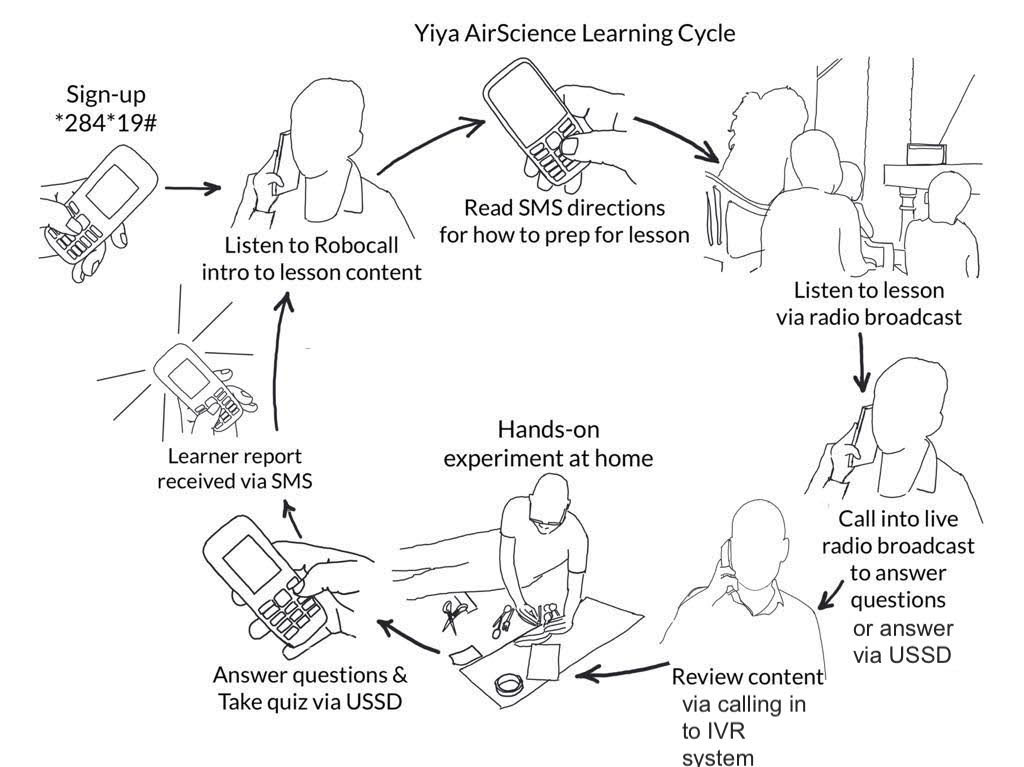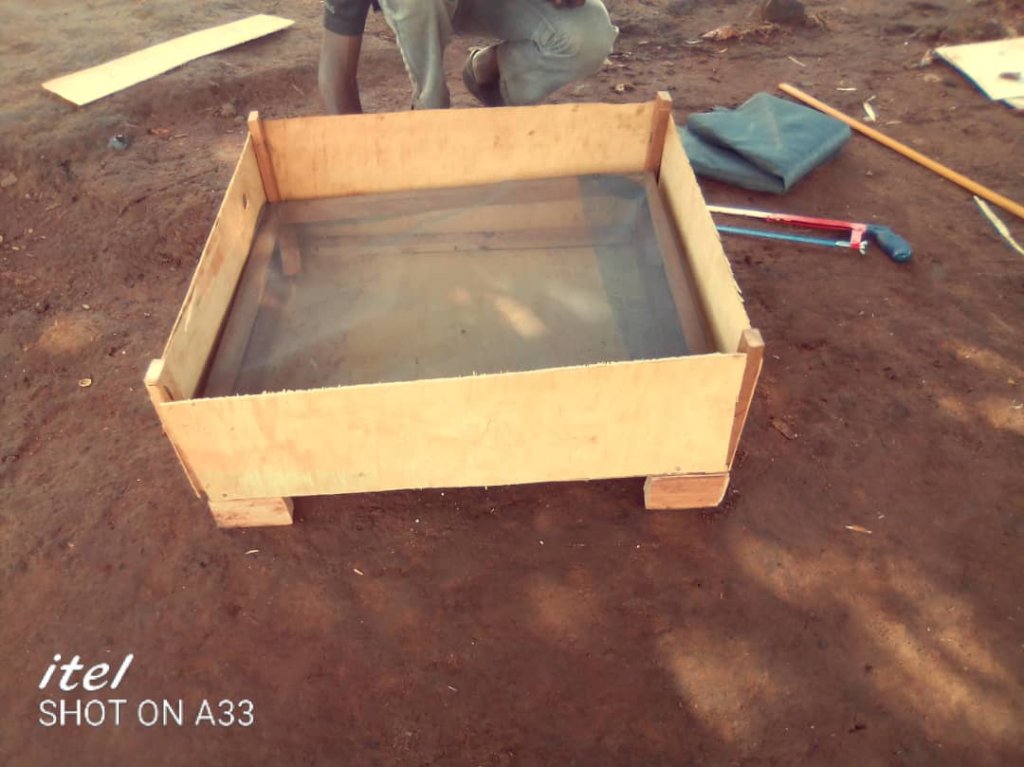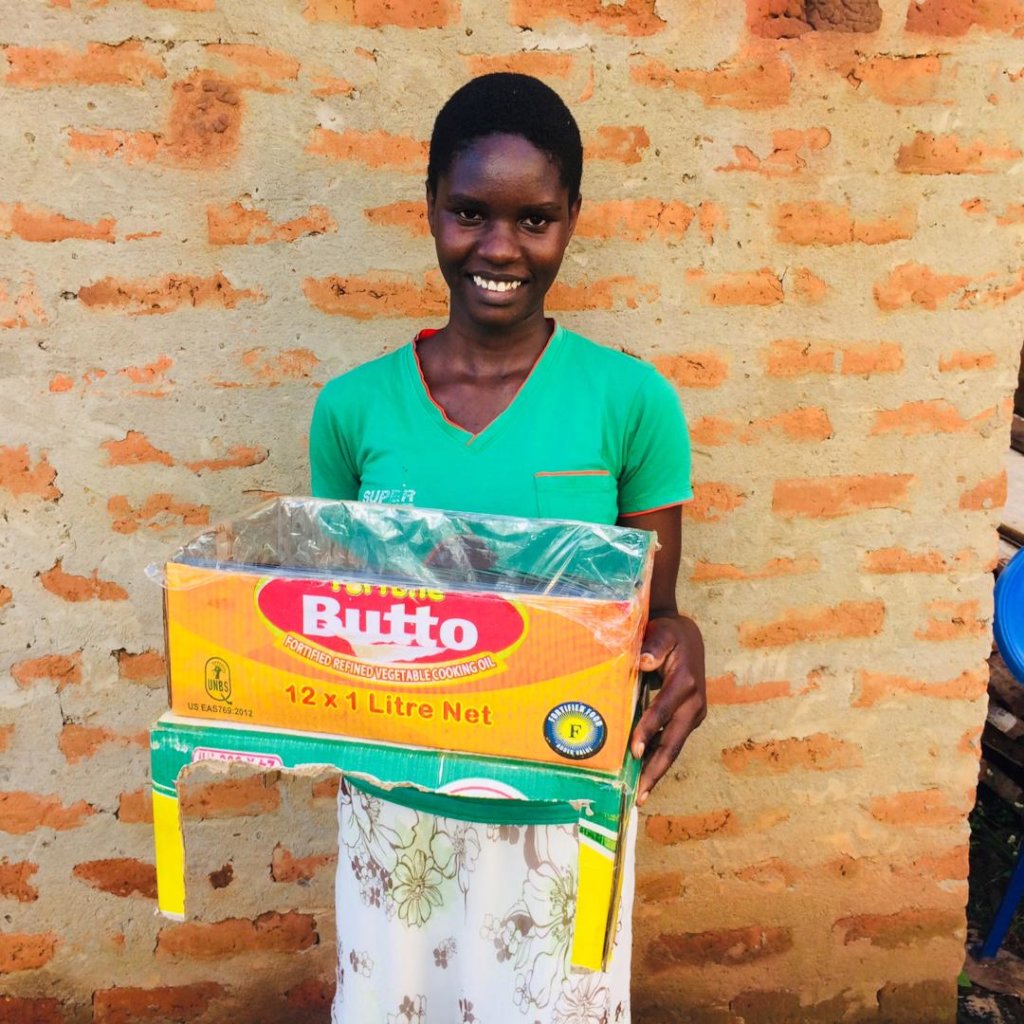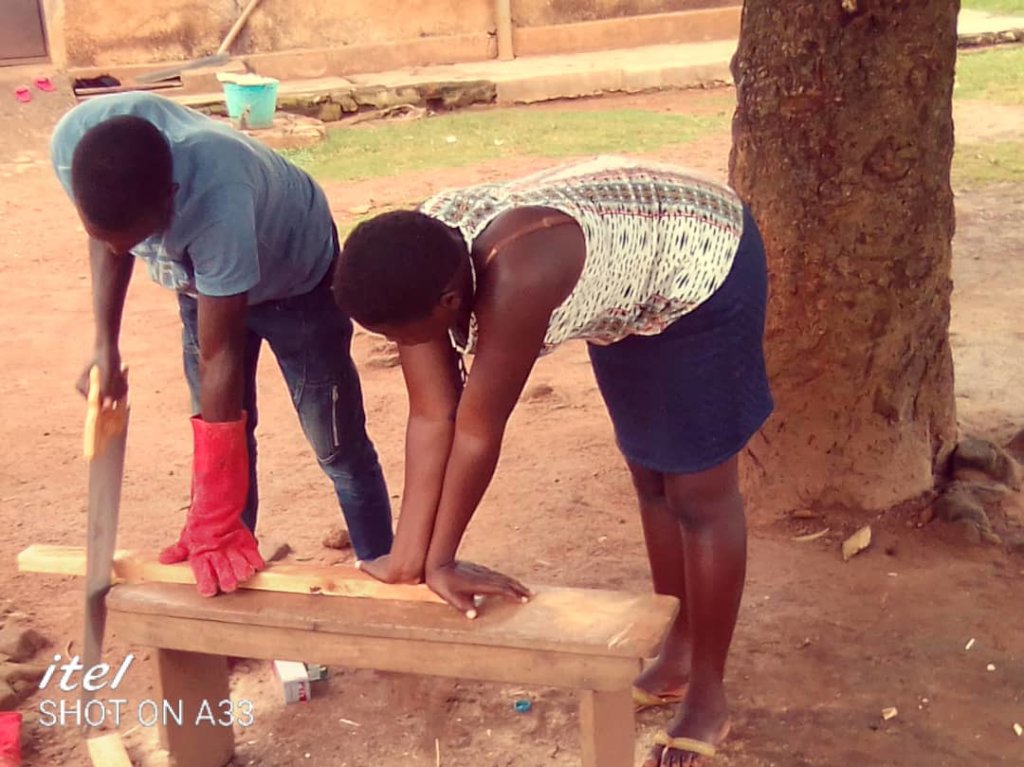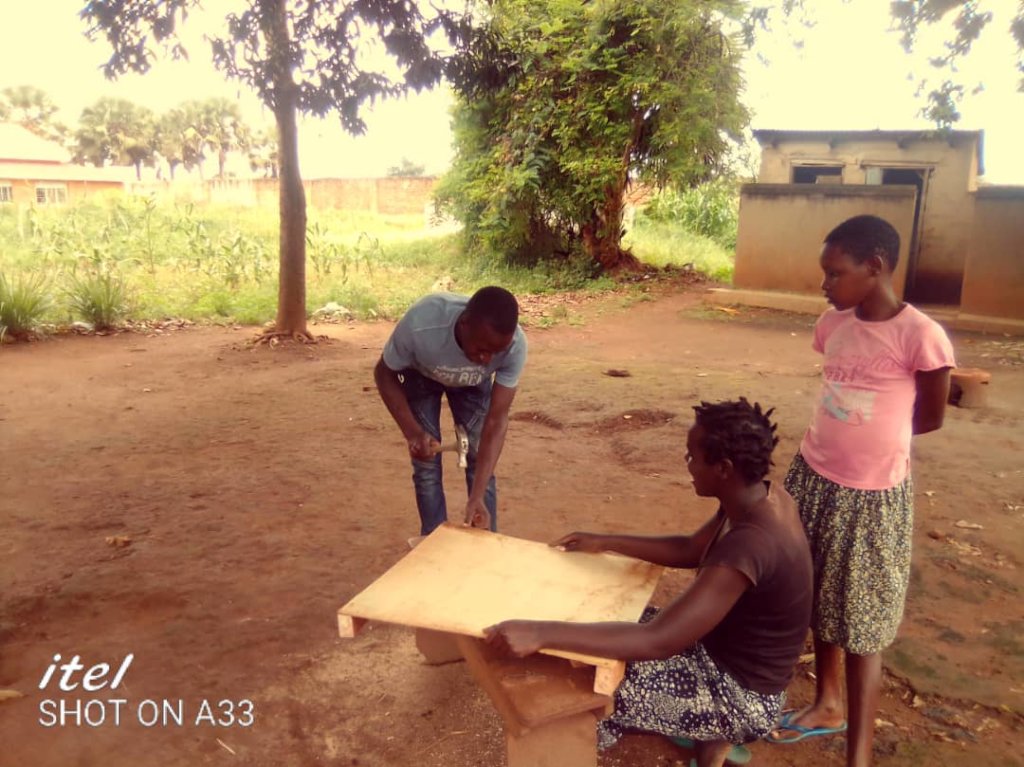![Team building games with students!]()
Team building games with students!
Summary:
When the Ugandan school year launched in February of this year, our Yiya team was raring to go! We had spent the last months of 2019 prepping and prototyping our newest engineering unit for students: Munching on Mealworms! Using agricultural engineering to farm edible insects for sustainable protein. Curriculum books and teacher manuals were ready, student engineering journals were printed, and our team had assembled the materials kits to be delivered to our 10 partner schools. We had 4 new schools join us this academic year so now the Yiya program is being directly taught to 400 students and impacting an additional 4,500 students through the 50 partner teachers we trained in February. We pushed hard from February until mid-March when all Ugandan schools were closed due to the spread of COVID-19. Please find below a summary of our activities in the first part of the year until we had to suspend in-person program delivery, and then read on to learn more about how we are pivoting to deliver offline remote learning opportunities to vulnerable students in rural areas with no access to internet or academic materials!
Report Contents:
- Developing the edible insect unit and farming prototype
- Training Head Teachers and school leaders
- Training partner teachers
- Co-teaching the edible insect unit in our 10 partner schools!
- Pivoting to deliver offline remote learning opportunities to rural youth
1. Developing the edible insect unit and farming prototypes
Developing the mealworm colonies
In mid-2019, in collaboration with our partners, Impact Design, Mothers Against Malnutrition and Hunger (Mamah), and Bobo Eco Farm, we obtained an import permit to import to Uganda eggs of edible molitor beetle. The mealworm colonies were set up at Bobo Eco Farm in Mityana, where the eggs hatched and the team began to grow the beetle colonies!
In December 2019, Yiya received their first cohort of beetles in the larval stage of their life cycle. We set them up in our first farm kit prototype (see below).
Making prototypes of insect farm kits
Prototype #1
The first insect farm kit prototype was made of four plastic containers arranged in a vertical structure stand with the top most one having a wire mesh at the bottom and the other 4 with solid bottoms. It was protected from predators by a mosquito net hung from the ceiling which enclosed it. This prototype was meant to make the work less labor-intensive and occupying minimum space. The wire mesh of the bottom in the top most container was designed for the eggs to drop through to the next level when the adult beetles reproduced in the top container. However, we learned the plastic containers were too deep to allow adequate air circulation, and the mesh holes were too small so the eggs were sticking and not falling through. Our mealworm colony grew, but slowly due to these challenges.
Prototype #2
The second prototype was made to be more movable and easily foldable even into a backpack to move from place to place. It was a wooden beehive structure to evenly distribute the weight. It held four plastic washing basins, with a mosquito net hung from the ceiling to enclose it. All the basins had a solid bottom and we manually moved the adult beetles from the basin once they have laid eggs (leaving the eggs in the basin to later hatch). This prototype was more effective but still the air circulation was not enough for optimal reproduction of the beetles. Also, the beehive structure ended up being unfeasible since the wood was not cured and when the screws became a little loose, it lost stability.
Prototype #3
The third prototype of the insect farm kit is a wooden frame structure, rectangular in shape, which is taller and wider than prototype #1. It holds basins but we experimented with cutting a few of the basins in half laterally and drilling screws in the sides so they sit easily in the frame. This prototype was flexible mesh covering all four sides of the prototype, with a mesh door that opens to allow one in to move the beetles and clean their basins, etc.
Prototype #4
The fourth prototype was the same as the third prototype except we bought square plastic sieves and rested them on top of the basins. Then the maize bran feed and the adult beetles were housed in the sieves, so that when they laid eggs, the eggs would drop down into the basin below. This worked fairly well except that a small percentage of the adult beetles would crawl through the sieve holes on the sides and fall into the lower basin where the eggs were. We are still experimenting with this prototype (our next iteration will be to cover the holes in the sides of the sieves with aluminum foil so they are slippery and the adult beetles cannot climb through them or up the sides.
Curriculum development
We designed an edible insect engineering curriculum to empower our teachers and students to develop sustainable and homegrown solutions to the problem of malnutrition through teaching them how to construct small, inexpensive edible insect farms (roughly the size of a rabbit hutch), and then showing them how to raise insects for consumption.
The curriculum consists of a lesson guide, student engineering journals, and a materials kit.
Teacher Lesson Guide
Teacher Lesson Guide contains background information, experiential education tips, lesson plans, and all guidance that teachers need to implement the unit in their school. The Teacher Lesson Guide is in Annex 1.
Student Engineering Journal
We also designed a student engineering journal that contains newspaper articles, pictures, and diagrams to guide students through the lessons. It also has tables and charts for students to conduct research and record their own ideas and the data they collected. The Student Engineering Journal is in Annex 2.
Materials Kit
The materials kit contains all the materials and tools for each school to create 8 edible insect farm kits. Yiya classes at our partner schools consist of 40 students each, so each group of 5 students gets to create their own farm kit!
2. Training Head Teachers and school leaders
The workshop was held on 28th Jan 2020 from 09:00am to 05:30pm at Days Inn Hotel in Lira town center.
We ran this workshop for school leaders from the 10 Yiya partner schools in Lira in order to introduce the Head Teachers to the edible insect unit and get their approval for farming edible insects in their schools. We explained what our 2020 Yiya program activities would be and brainstormed collaboratively with the school leaders as to how to maximize the impact of the Yiya program at their school. One of our Yiya values is lifelong learning, so we also included a leadership development session at the training where we taught the school leaders about the personality traits of Myers-Briggs and taught them how to leverage personality traits of their teachers to increase academic performance in their schools.
3. Training partner teachers
This workshop was held on 10th Feb 2020 from 09:00am to 05:30pm at Days Inn Hotel in Lira town center. This educator workshop was a professional development training for selected teachers, called engineering educators, from the 10 Yiya partner schools. All activities were deliberately designed to serve the purpose of showing teachers how experiential learning is conducted. Teachers also practiced all the lessons in the edible insect engineering unit and planned how to co-teach the lessons to students in their schools.
4. Co-teaching the edible insect unit in our 10 partner schools!
By mid-March our team had taught up to at least Lesson 3 of the farming edible insects engineering unit (some schools got as far as Lesson 6!), with an average attendance of 96% (38 students per lesson, out of 40 registered students, for a total of 385 students actively participating in the Yiya program, out of 400 registered students amongst the 10 schools).
52% of the active students are female and 48% are male students.
Before schools were closed in mid-March, all Yiya partner schools had received all engineering materials to build their first edible insect farm prototypes and had also received their first batch of beetles (the adult life cycle of the mealworms). A teacher at each school who lives nearby was designated to care for the mealworm stock while school is closed.
We are lucky that our curriculum has a 6-week break built into its design. This break was designed to be time for schools to work on growing their mealworm stock before they harvest it in Term 2 and try designing new recipes for how to cook the mealworms in a way that is culturally appropriate for their local community. This 6-week growing period was supposed to happen over May and early June, so it got pushed sooner due to the lockdown. The disappointing part is that now it is the teachers caring for the mealworms and not the students, since all students have been sent home. We are ready to jump back in as soon as schools are allowed to re-open in order to complete the unit with students and get the community munching on mealworms!
5. Pivoting to deliver offline remote learning opportunities to rural youth
While schools have been closed, the Yiya team has been hard at work, brainstorming, developing, and designing strategies for how to reach rural youth in poverty-stricken areas who have no access to internet, smartphones, or academic materials. We are developing a program to get our science and engineering activities out to students without the use of internet, teachers, or expensive materials. Thisp program will involve radio broadcasted content and student interaction through realtime SMS exchange, as well as academic content shared via robocalls and mass text messages sent out to all students registered in the Yiya program. More updates coming soon as we roll out this exciting new initiative, which we are calling SomeroSimu, which is Luganda for Phone School!
![Training teachers on engineering design process]()
Training teachers on engineering design process
![Teaching about protein needs of children]()
Teaching about protein needs of children
![Interviewing adults on daily diet]()
Interviewing adults on daily diet
![School Leaders are engineers too!]()
School Leaders are engineers too!
![Tasting the mealworms for the first time!]()
Tasting the mealworms for the first time!
Links:
![Share on Twitter]()
![Share on Facebook]()






